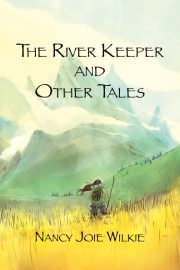How semantics can help you! Part 2
by Juliette Wade
Neural networks are really amazing things. In my last post I talked about how a word brings up all of its meanings simultaneously; today I’m going to talk about how that’s not all it brings up.
I’m talking about connotations and allusion.
Along with all of its meanings, the mention of a word can bring up all the contexts in which we’ve encountered it. With exceedingly common words, there may not be a particular context that stands out, and the word may have a more generic feeling. With less common words, we may really notice how they evoke the context in which they were created (Quidditch, anyone?) or in which they were used. Regardless, these contexts always tag along, and they influence the way we hear a word.
Has anyone ever tried to use the word “ejaculate” as a dialog tag? No? It used to be common enough, but I’m guessing you can see why we don’t use it so much that way any more. (Dialog tags are out of fashion anyway because they can be distracting.)
This reminds me of a discussion I had on the Analog forum about euphemisms. They tend to get “used up” and replaced by others quite quickly. Why? Because of the contexts in which they are used. If those contexts are considered dirty or low, then the quality of the context will be evoked in the speaker or writer’s mind with every occurrence of the word, and eventually the word will be sullied by its association with that context.
In my classes at the school of Education at UC Berkeley, occasionally the word “intertextuality” came up. It essentially means that a word will evoke in the reader’s mind all the texts in which they have seen it. “Monster” can bring up Frankenstein, or Monsters Inc. or any number of other things. This is one of the reasons that my friend Paul Carlson was able to put together his list of words that evoke particular genres (find it here).
When you’re writing, it might be daunting to remember that there are a million layers floating behind everything you say, particularly when you choose a word that doesn’t occur so frequently as to become semi-generic. Almost any word can become more than it is, much like the few critical words used in ancient Japanese poetry (I’m thinking primarily of tanka, not haiku).
Daunting, sure – but what an opportunity! This stuff can allows you to imbue a scene with a sense of foreboding or excitement. The other thing it can do is allow you to illuminate your point of view character. All of the judgments of value inherent in a particular word will reflect on the user of that word. We see this all the time in oral language when we judge people based on their use of cuss words or insulting words for others. In a piece of narrative writing, all those judgments will be associated with the point of view character. It’s one of the ways that point of view can extend into your writing far beyond the simple first and third person pronouns.
That’s it for today, but stay tuned for the next installment.
 Juliette Wade is an author of science fiction and fantasy who loves language and its cultural consequences. Her fiction appears in Analog and other short fiction magazines. She has degrees in Linguistics, Anthropology and Japanese.
Juliette Wade is an author of science fiction and fantasy who loves language and its cultural consequences. Her fiction appears in Analog and other short fiction magazines. She has degrees in Linguistics, Anthropology and Japanese.


